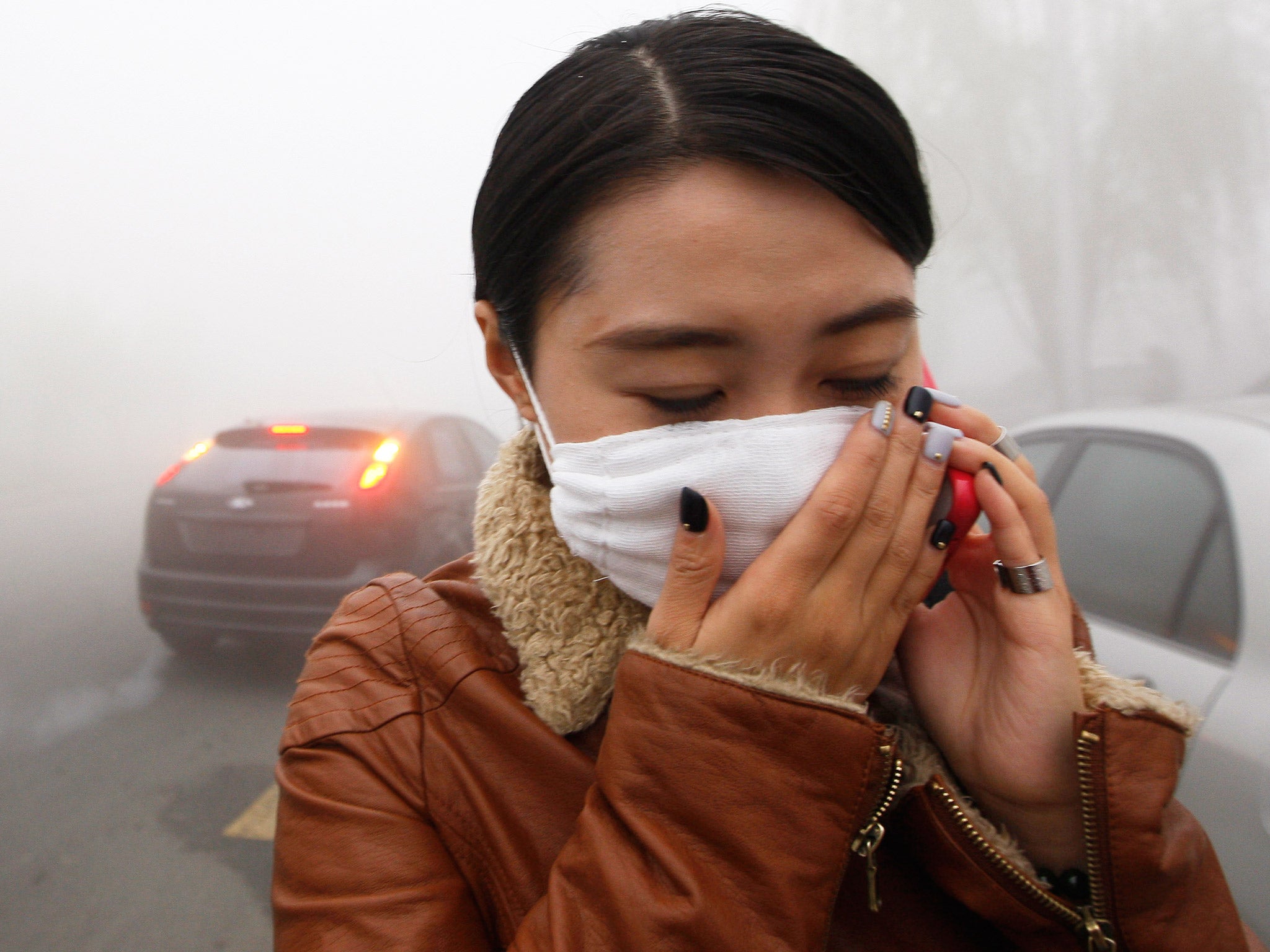Women breathing high levels of air pollution during last month of pregnancy more likely to give birth to babies with much lower birth weight
The study is the first time researchers have been able to pinpoint the effect of air pollution levels on a particular development period in the womb

Your support helps us to tell the story
From reproductive rights to climate change to Big Tech, The Independent is on the ground when the story is developing. Whether it's investigating the financials of Elon Musk's pro-Trump PAC or producing our latest documentary, 'The A Word', which shines a light on the American women fighting for reproductive rights, we know how important it is to parse out the facts from the messaging.
At such a critical moment in US history, we need reporters on the ground. Your donation allows us to keep sending journalists to speak to both sides of the story.
The Independent is trusted by Americans across the entire political spectrum. And unlike many other quality news outlets, we choose not to lock Americans out of our reporting and analysis with paywalls. We believe quality journalism should be available to everyone, paid for by those who can afford it.
Your support makes all the difference.Women breathing high levels of air pollution during the last month of pregnancy are more likely than unexposed women to give birth to babies with a significantly lower birth weight, according to a study of the effects the air-quality controls introduced during the 2008 Beijing Olympics.
The temporary pollution regulations imposed on the Chinese capital during the Olympics had a measurable and positive impact on the weight of the babies born to mothers who were 8-months pregnant at the time of the games, scientists said.
It is the first time that researchers have been able to pinpoint the effect of air pollution levels on a particular development period in the womb, indicating the importance of clean air during the last month of pregnancy when foetal growth is the most rapid.
Although Beijing has notoriously high levels of air pollution, cities in Britain such as London also experience regular periods where EU limits are exceeded. An survey by The Standard newspaper found that seven out of ten Londoners believe politicians are not doing enough to curb pollution levels in the capital.
The findings in Beijing emerged from an analysis of nearly 84,000 births to mothers living in four urban districts of the Chinese capital before, during and after the 2008 Olympics, when the Chinese Government imposed strict curbs on vehicles and industry to minimise the impact of the city’s high levels of air pollution on competing athletes.
Scientists found that women who were in the eighth month of their pregnancy during the seven-week period of the Olympics-Paralympics benefited most from the cleaner air. They gave birth to babies who were on average 23 grams heavier than babies born to similar women in 2007 and 2009, when air pollution controls were not as strict.
There was no such similar significant difference in birthweights for women who were between the first and seventh month of pregnancy during the clean-air period. The researchers said the findings for the eighth week of pregnancy held across different age groups and socio-economic class – strongly indicating a direct link between high birth weights and lower levels of air pollutants.

“This is the first study to show that when air pollution levels go down during the 8th month of pregnancy, we see an increase in birth weight.,” said David Rich, an epidemiologist at the University of Rochester Medical Centre in New York, and lead author of the study published in the journal Environmental Health Perspectives.
“The results of this study demonstrate a clear association between changes in air pollutant concentrations and birth weight. These findings not only illustrate one of the many significant health consequences of pollution, but also demonstrate that this phenomenon can be reversed,” Dr Rich said.
In the months leading up to the games, the Chinese authorities introduce a series of aggressive measures, such as prohibiting traffic, closing factories and even seeding clouds to make it rain. This resulted in a 60 per cent reduction in sulphur dioxide, a 48 per cent reduction in carbon monoxide, a 43 per cent reduction in nitrogen dioxide and a reduction in the number of particles in the air smaller than 2.5 microns, which can enter the blood stream through the lungs.

Because the regulations were relaxed once the Olympics ended, the produced an ideal “natural experiment” to study the effects of high and low pollution levels on pregnant women and their newborn babies, the scientists said.
“Our study suggests that even a short term increase in air pollution in a normally heavily polluted city can have a public health benefit, and suggests that we should investigate by what mechanisms this is occurring,” Dr Rich said.
Late pregnancy is particularly important for foetal growth because this is the greatest amount of physical growth and the time when there is rapid development of the central nervous system, as well as the cardiovascular and musculoskeletal systems, he said.
Junfeng Zhang, a researcher at Duke University in North Carolina, who led the study, said: “While Beijing’s pollution is particularly noteworthy, many of the world’s other cities face similar air-quality problems. This study shows that pollution controls – even short-term ones – can have positive public health benefits.”
Previous studies have produced inconsistent results when examining the link between exposure to air pollutants at various times during pregnancy and birth weight. One study in the US that examined the impact of a temporary shut down of a steel mill in Utah for 13 months found that mothers who were already pregnant when it closed were less likely to give birth prematurely, but did not find a significant reduction in birth weight.
Join our commenting forum
Join thought-provoking conversations, follow other Independent readers and see their replies
Comments